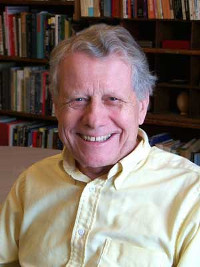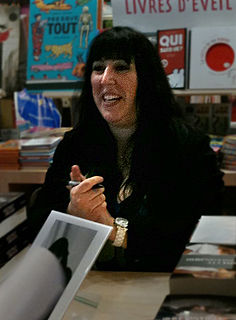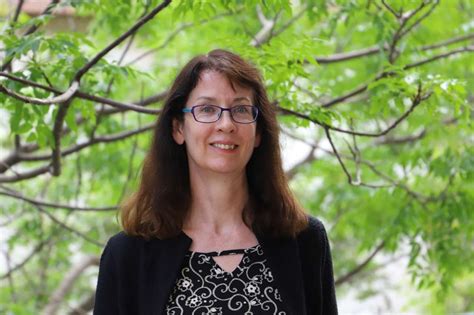Top 375 Surveillance Quotes & Sayings - Page 7
Explore popular Surveillance quotes.
Last updated on April 16, 2025.
I used to hate the urban environment and the urban din. But I realize now that it's really not that much different than living next to a waterfall for wildlife. Most wildlife - unless they're specifically adapted - avoid being around a waterfall or whitewater streams and rivers because it jams their sense of surveillance. They are more vulnerable, and their message loses intelligibility. Now, the ouzel is able to overcome that in various ways. Back to the urban environment, we're talking and delivering messages as if we weren't next to a waterfall, and that's a problem.
From that point on, the extraordinary system of spies and informers which has played an important part in the political work of the French state into our own time took shape. (Sartine, who became lieutenant general de police in 1759, is supposed to have said to Louis XV, "Sire, when three people are chatting in the street one of them is surely my man.") Eighteenth-century police manuals like those of Colquhoun in England or Lemaire in France are no less than general treatises on the government's full repertoire of domestic regulation, coercion, and surveillance.
Wall Street is a huge issue. And it's controlling our lives today with this so-called election - we really have no choice. We're really just onlookers. The national surveillance state has not been debated by any candidates, Democratic or Republican. Our wars, our repeated wars - our new war in Syria has not been brought up because everyone agrees essentially that we have to continue doing what we're doing. And maybe even now go back to Libya.
I think Martin Luther King would always keep track of collective insurgencies among poor and working people. He was concerned about the treatment of Jews in the Soviet Union, for example. He would have closely followed the Arab Spring. And certainly he would be very critical of the massive surveillance state that has emerged in America in the last five to 10 years. He would have approved of the movements trying to gain some accountability in U.S. foreign policy, such as drones being (used) on innocent people. I think he would march against drones.
I don't think he would have had any trouble answering Justice Sonia Sotomayor's excellent challenge in a case involving GPS surveillance. She said we need an alternative to this whole way of thinking about the privacy now which says that when you give data to a third party, you have no expectations of privacy. And [Louis] Brandeis would have said nonsense, of course you have expectations of privacy because it's intellectual privacy that has to be protected. That's my attempt to channel him on some of those privacy questions.
Abby must have been the one who found the safe house, because Townsend didn't like it. "The building across the street is under construction," he snarled as soon as we'd carried our bags inside. "The elevator has key card access, and I've hacked into the surveillance cameras from every system on the block," Abby argued. "We have a three-hundred-sixty-degree visual." "Excellent." Townsend dropped his bag. "Now the circle can see us from every angle." "Don't mind Agent Townsend, girls," Abby told us. "He's a glass-half-empty kind of spy." "Also known as the good kind," he countered. Abby huffed.
The domestic NSA-led Surveillance State which Frank Church so stridently warned about has obviously come to fruition. The way to avoid its grip is simply to acquiesce to the nation's most powerful factions, to obediently remain within the permitted boundaries of political discourse and activism. Accepting that bargain enables one to maintain the delusion of freedom - "he who does not move does not notice his chains," observed Rosa Luxemburg - but the true measure of political liberty is whether one is free to make a different choice.
I think a persons life is supposed to be like a DVD. You can see the version everyone else sees, or you can choose the directors cut-the way he wanted you to see it, before everything else got in the way. There are menus, probably, so that you can start at the good spots and not have to relive the bad ones. You can measure your life by the number of scenes you’ve survived, or the minutes you’ve been stuck there. Probably, though, life is more like one of those dumb video surveillance tapes. Grainy, no matter how hard you stare at it. And looped: the same thing, over and over.
After 9/11 we were prepared to use military force. We were prepared to go after not only the terrorists, but those who sponsor terror and provide sanctuary and safe harbor for them. We were prepared to use our intelligence assets the way we would against an enemy that threatened the United States itself, to put in place, for example, things like the Terror Surveillance Program and to have a robust interrogation program on detainees. Those are the acts you take when you feel you're at war and that the very existence of the nation is threatened.
We are getting close to the point where as every platform of tech that has any level of scale gets bought by either Google or Facebook or sometimes Microsoft. We are getting to the point where we see some oligopoly in terms of behavior online, and that it's really problematic because the oligopolies are completely non transparent, they are terrible in terms of labor and economic equality and they support systems of surveillance. It can create a world where we are all placed in bubbles, where the systems themselves can be manipulated by people who don't have our best interests in mind.
When I look out [the window] at the big houses on either side of the road, it's obvious we've entered the rich side of town. Poor people don't post signs like NO TRESPASSING, PRIVATE DRIVE, PRIVATE PROPERTY, MONITORED BY CAMERA SURVEILLANCE. I should know because I've been poor my entire life, and the only person I know who ever posted a sign like these is my friend...and he actually stole the sign off a rich guy's yard.
When we look at the full-on mass surveillance watching everyone in the country, in the United States, it doesn't work. It didn't stop the attacks in Boston. The marathon bombings. Where again, we knew who these individuals were. It didn't stop the Underwear Bomber, whose father walked into an embassy and warned us about this individual before he walked onto an airplane. And it's not going to stop the next attacks either. Because again, they're not public safety programmes. They're spying programmes. They are valuable for spying.
More directly linked to the impact of technology, it involves the gradual appearance of a more controlled and directed society. Such a society would be dominated by an elite whose claim to political power would rest on allegedly superior scientific know-how. Unhindered by the restraints of traditional liberal values, this elite would not hesitate to achieve its political ends by using the latest modern techniques for influencing public behavior and keeping society under close surveillance and control.
Health education emphasizing risks is a form of pedagogy, which, like other forms, serves to legitimize ideologies and social practices. Risk discourse in the public health sphere allows the state, as the owner of knowledge, to exert power of the bodies of its citizens. Risk discourse, therefore, especially when it emphasizes lifestyle risks, serves as an effective Foucauldian agent of surveillance and control that is difficult to challenge because of its manifest benevolent goal of maintaining standards of health. In doing so, it draws attention away from the structural causes of ill-health.
The Baathist state did two things extremely well. One was create information-gathering intelligence networks and a filing system. There's actually a lot of information on a lot of people and that is a major achievement of a police state. The second one is the promotion of literature and poetry, and the arts generally. So this is a state that's producing mass police archives - surveillance - and poetry. And in fact a lot of the archives are about what poets are writing or what they should be writing.














